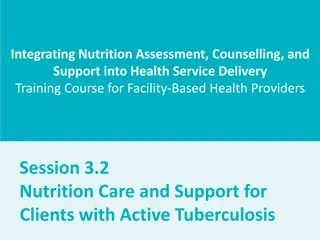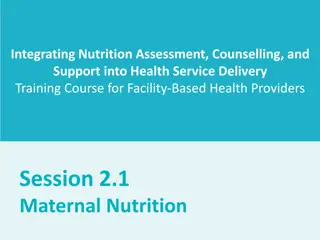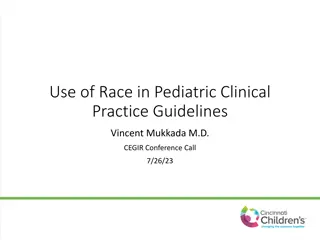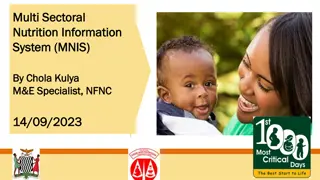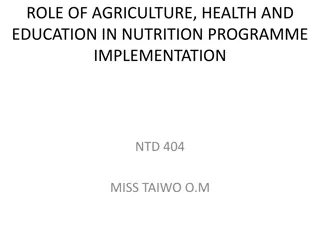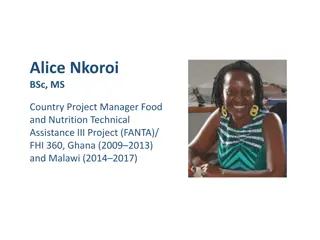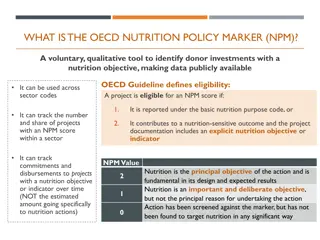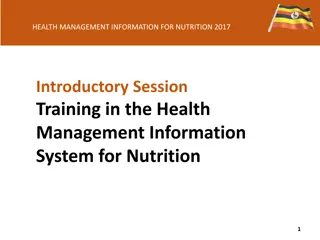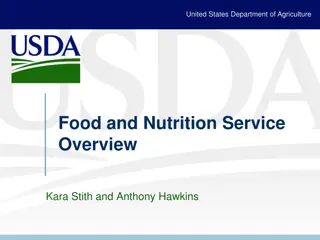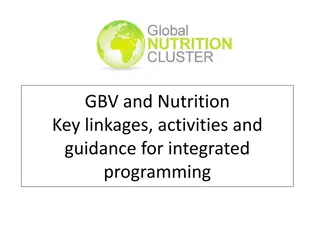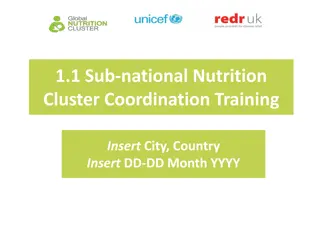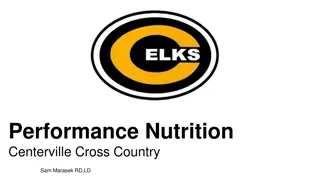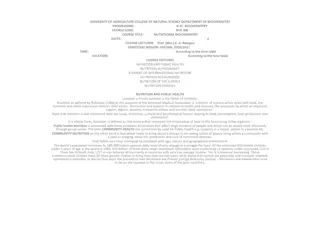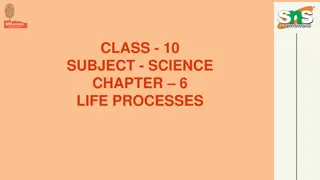Optimizing Race Day Performance: Nutrition and Training Tips
Learn how to prepare for a marathon with crucial tips on nutrition, hydration, and training. Discover the importance of carbohydrate loading, adequate hydration, and meeting essential food group requirements. Get insights on muscle glycogen resynthesis, hydration strategies, and the basics of maintaining a balanced diet. Plan ahead for race day success by practicing breakfast routines, strategizing, and prioritizing recovery.
Download Presentation

Please find below an Image/Link to download the presentation.
The content on the website is provided AS IS for your information and personal use only. It may not be sold, licensed, or shared on other websites without obtaining consent from the author. Download presentation by click this link. If you encounter any issues during the download, it is possible that the publisher has removed the file from their server.
E N D
Presentation Transcript
Dunedin Marathon getting the little things right Photo courtesy of lanier67 on flickr
MEGAN GIBBONS HEAD OF COLLEGE OTAGO POLYTECHNIC NUTRITIONIST ATHLETICS COACH
3 months to go.... Starting to think about what to do on race day Thinking about eating better to help training Have heard of carbohydrate loading Don t really drink when training what about race day Aches and Pains
What to do on Race Day Plan ahead and practice Make sure you eat breakfast Have a strategy Hydrate Toilet stops Recovery
Do the Basics Right Meet the minimum recommended serves of each of the food groups Fruit and Vegetables (5) Breads and Cereals (6) Meat or Alternatives (1-2) Dairy or Alternatives (2-3) Plenty of fluids Minimise fat, sugar and salt If drinking alcohol do so in moderation
Having Enough Carbohydrate Important for energy Important for recovery Muscle and brain fuel
Muscle Glycogen Resynthesis (Costill and Miller, 1980) Nutrition Applied PT571001; SP572001; SM569001
Hydration Body 60% water Essential for regulating body temperature transporting nutrients and oxygen medium for reactions to occur Learn to drink on the run Camelback/drink belt Use the aid stations Water vs sports drink vs gels
Carbohydrate Loading Schematic presentation of the "classical" and modified methods of carbohydrate loading 250 Glycogen (mmol/kg ww) 200 150 Classic Modified 100 50 0 0 1 2 3 4 5 6 Days
Pre Race Meal (also pre-training) High CHO Low fibre Low fat Low-moderate protein Adequate fluid
Examples of Suitable Options Breakfast cereal with reduced-fat milk and fruit Porridge with reduced-fat milk and fruit juice Muffins or crumpets with honey/jam/syrup Baked beans on toast Creamed rice and tinned fruit Jacket potato and creamed corn Low-fat breakfast bar or muesli bar and a banana Roll or sandwich with banana and honey Fresh fruit salad with yoghurt
Aches and Pains Stomach cramps Toilet stops Cramping Dehydration Fatigue Illness Injury






